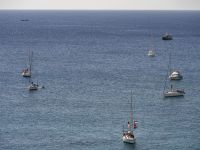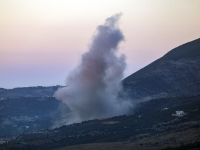Syrian officials had no comment Tuesday on overnight claims by US Secretary of State Colin Powell that Syria had pledged to put its controversial oil pipeline from Iraq under United Nations control.
After a meeting in Damascus late Monday with Syrian President Bashar Al-Assad on the final leg of a whirlwind Middle East tour, Powell said Assad had offered assurances that Damascus did not want to violate UN sanctions on Iraq, which prohibit Baghdad from exporting oil outside the auspices of the UN oil-for-food programme.
Washington has for months suspected that Syria was importing Iraqi oil illegally through the pipeline at below market prices and using it to make up for a shortfall created by selling domestically pumped oil abroad.
But on Tuesday, the official Syrian press said nothing on the subject. Moreover, Assad's office and the foreign ministry declined to comment.
The US State Department has repeatedly asked Damascus for an explanation of the sharp increase in sales of its domestic oil abroad that came amid reports that Iraqi oil was flowing through the pipeline.
However, the only response it had received, until Powell's brief stop in Syria on Monday, was that the pipeline was being tested, an explanation that US officials said had become increasingly difficult to believe.
Following the Monday meeting, Powell said: "The president said to me, in response to my query, that it is their plan to bring the pipeline and what is going through the pipeline, and revenues generated in that pipeline to be under the same kind of control as other elements of the sanctions regime."
The UN programme -- which allows Baghdad to export oil to purchase civilian and humanitarian goods -- began in 1996 after criticism that sanctions imposed on Baghdad after the Gulf War were causing the Iraqi people to suffer.
Iraq has protested against the programme, while the United States and others have routinely accused Baghdad of attempting to flout the restrictions in order to use oil revenues to purchase weapons.—AFP.
©--Agence France Presse 2001.
© 2001 Mena Report (www.menareport.com)







